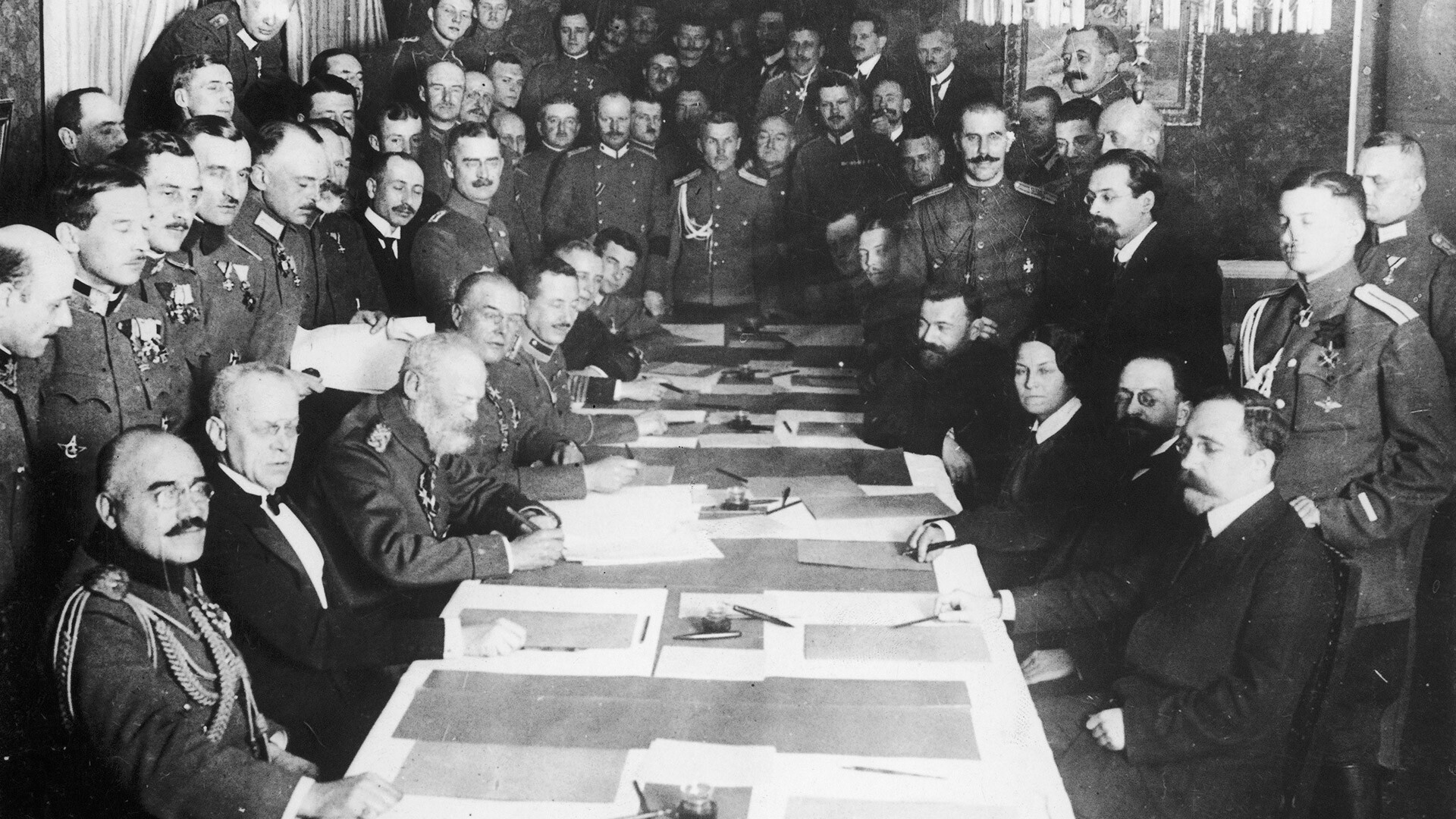
Signing of the peace treaty of Brest-Litovsk.
Gamma-Keystone/Getty ImagesOn March 3, 1918, in the town of Brest-Litovsk (southwest of present-day Belarus), a peace treaty was concluded between Soviet Russia and the Central Powers comprising Germany, Austro-Hungary, Bulgaria and the Ottoman Empire. The country paid a huge price for pulling out of World War I - it lost up to a million square kilometers of territory with a population of over 56 million people and enormous industrial capacities.
What forced the Bolshevik government to take such a step?
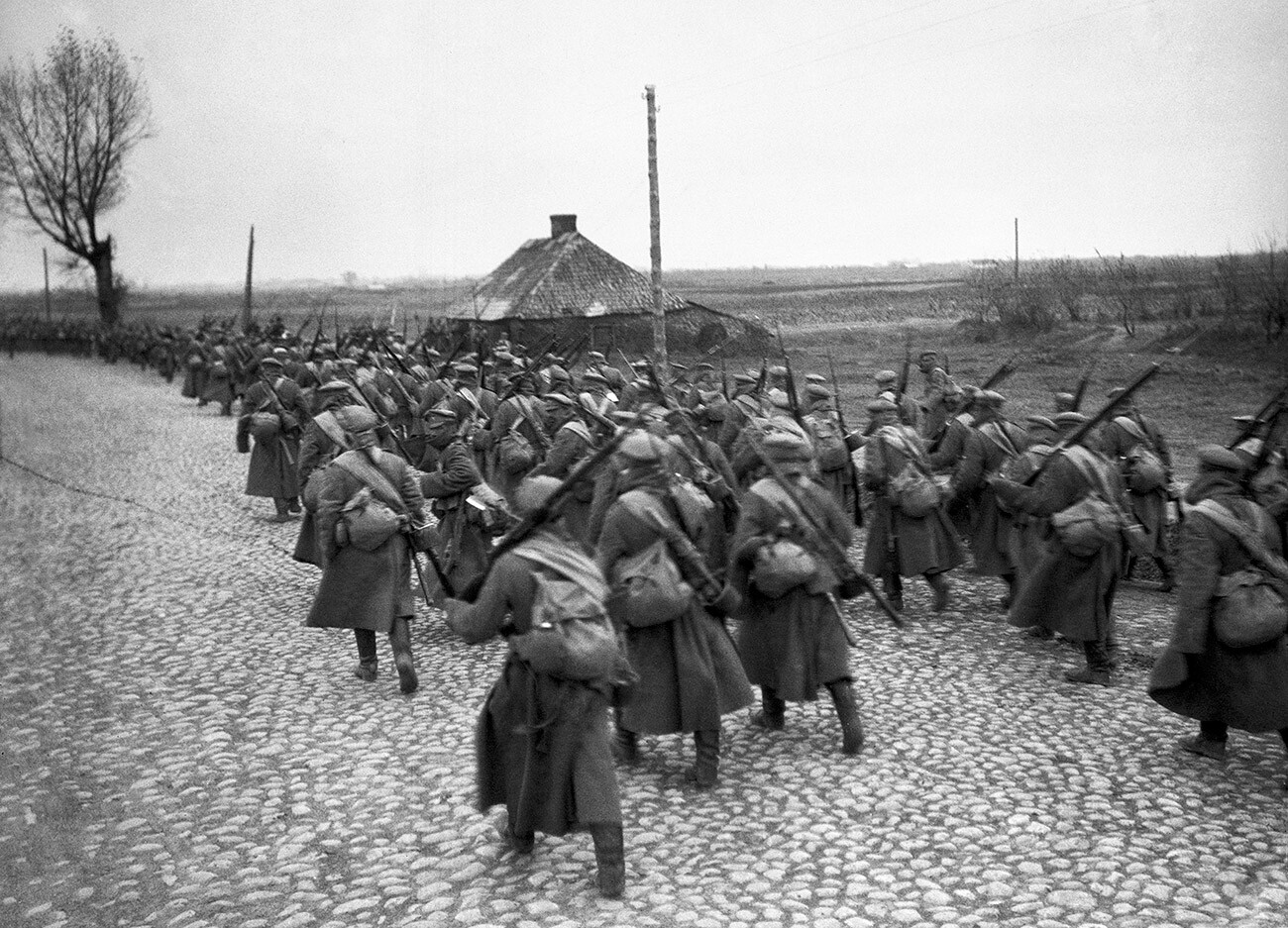
Russian infantry during WWI.
Daily Mirror/Mirrorpix/Getty ImagesThe desire on the part of Lenin and his associates to pull Russia out of the war as quickly as possible won the Bolsheviks many new supporters. Russian society was weary of years of bloodshed. Furthermore, the combat readiness of the armed forces was at an extremely low level, with the “democratization” set in motion in the army after the overthrow of autocracy having taken its toll.
In November 1917, the Bolsheviks overthrew the Provisional Government, which advocated a continuation of hostilities and took power in the country. They immediately proposed to their Western allies that they would conclude “peace without annexations or indemnities” with the enemy, but, as the Western allies didn’t recognise the Soviet government as legitimate, they simply ignored the initiative.
Then a proposal to begin peace talks was sent directly to the Germans. They, for their part, took it very seriously - war on two fronts was draining their resources. Despite the fact that, by that time, they had managed to occupy some Russian territory (Polish and Lithuanian lands, as well as western regions of present-day Latvia and Belarus), they saw no prospect of victory over Russia in the foreseeable future.
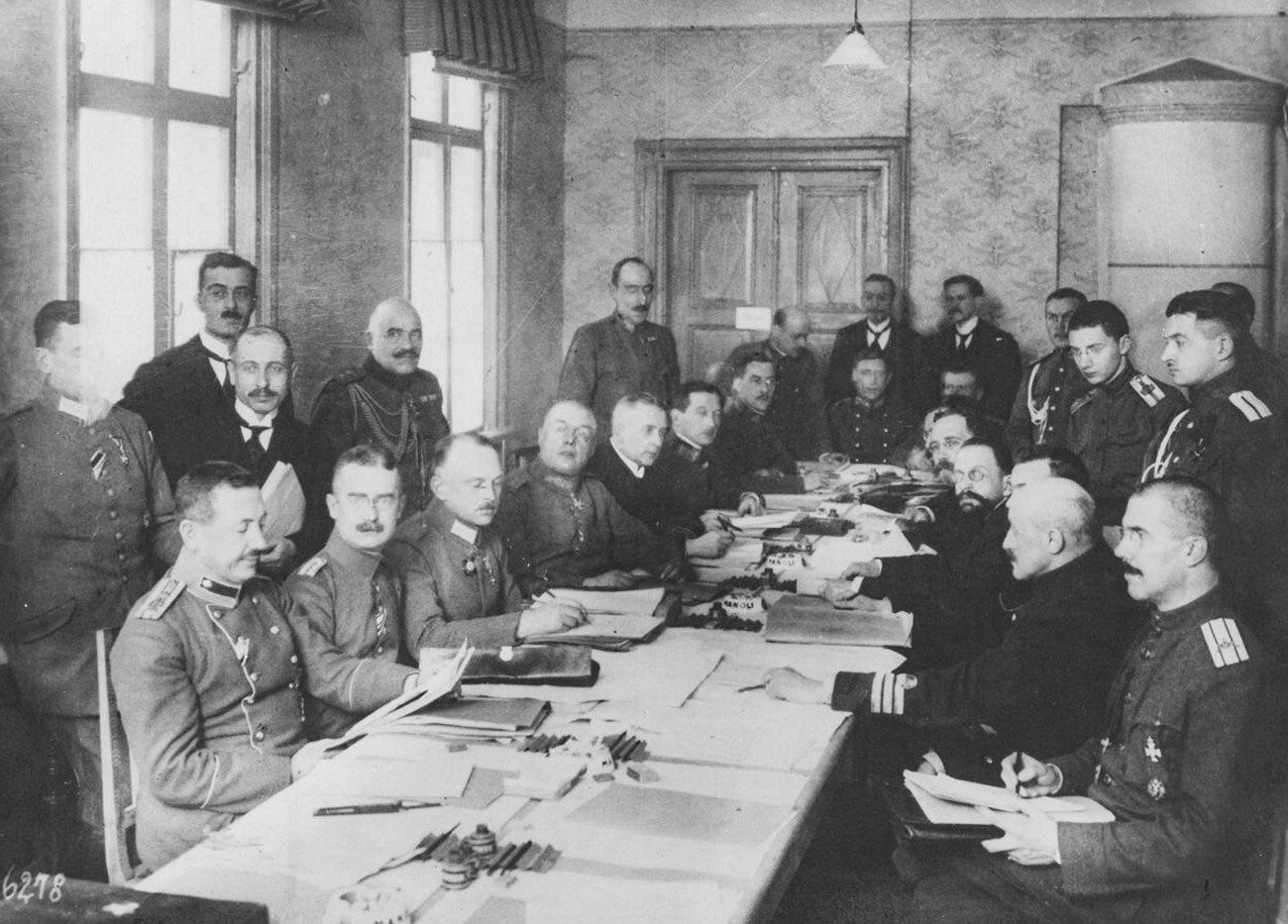
Negotiations in Brest-Litovsk.
Public DomainHaving agreed a ceasefire, the parties sent their delegates to Brest-Litovsk, where peace talks began on December 22. General Max Hoffmann, chief of staff to Commander-in-Chief of the Eastern Front Prince Leopold of Bavaria, recalled: “I have thought a lot about whether it would not have been better had the German government and Supreme Army Command rejected negotiations with the Bolshevik authorities. By giving the Bolsheviks the opportunity to stop the war, thereby satisfying the yearning for peace that had gripped the entire Russian people, we helped them retain power.”
These thoughts came to the German top brass long after the war. At the time, however, the political and military leadership of the empire rejoiced.
Formally, the Germans agreed to discuss “peace without annexations or indemnities”. But, by demanding recognition of the “independence” of the puppet regimes they had set up in the occupied territories, they were effectively seeking recognition of the transfer of these lands to the rule of Berlin.
The Bolsheviks, on the other hand, expected neither side’s troops to be present there and the local populations to be granted the right to self-determination. Since the rubber-stamp national committees established by the Germans did not suit the Russians, the demand was rejected and the talks dragged on.
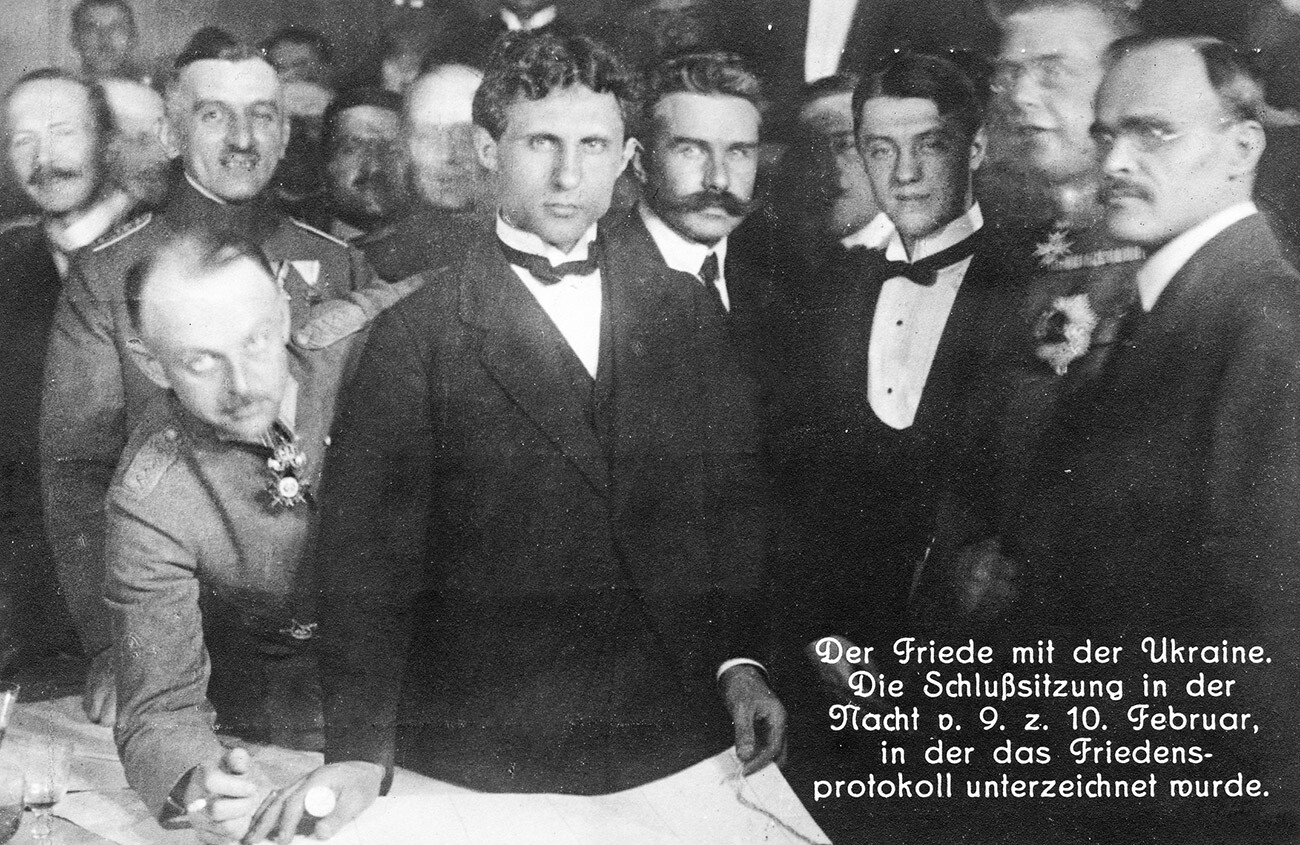
Signing of the peace treaty between Ukraine and the Central Powers in Brest-Litovsk.
Public DomainThroughout the process, Lenin remained a consistent supporter of concessions to the Germans. “A revolutionary war requires an army and we lack an army… Undoubtedly, the peace treaty we are now forced to sign is an obscene peace treaty, but, if war starts, our government will be swept aside and the peace will be concluded by another government,” the ‘leader of the world proletariat’ asserted.
The situation deteriorated substantially on February 9, when the Central Powers signed a peace treaty in Brest with the Ukrainian People’s Republic - an alternative power center to the Bolsheviks in Ukraine, which had entered into armed conflict with the latter. In exchange for diplomatic recognition and military assistance, the Ukrainians pledged to supply the Germans and Austrians with food and raw materials.
The following day, the German side set Russia an ultimatum to immediately accede to its demands. In response, Leon Trotsky, the people’s commissar (minister) for foreign affairs, who had joined the talks, put forward the formula “neither war nor peace”: “We halt the war and demobilize the army, but do not sign a peace treaty.”
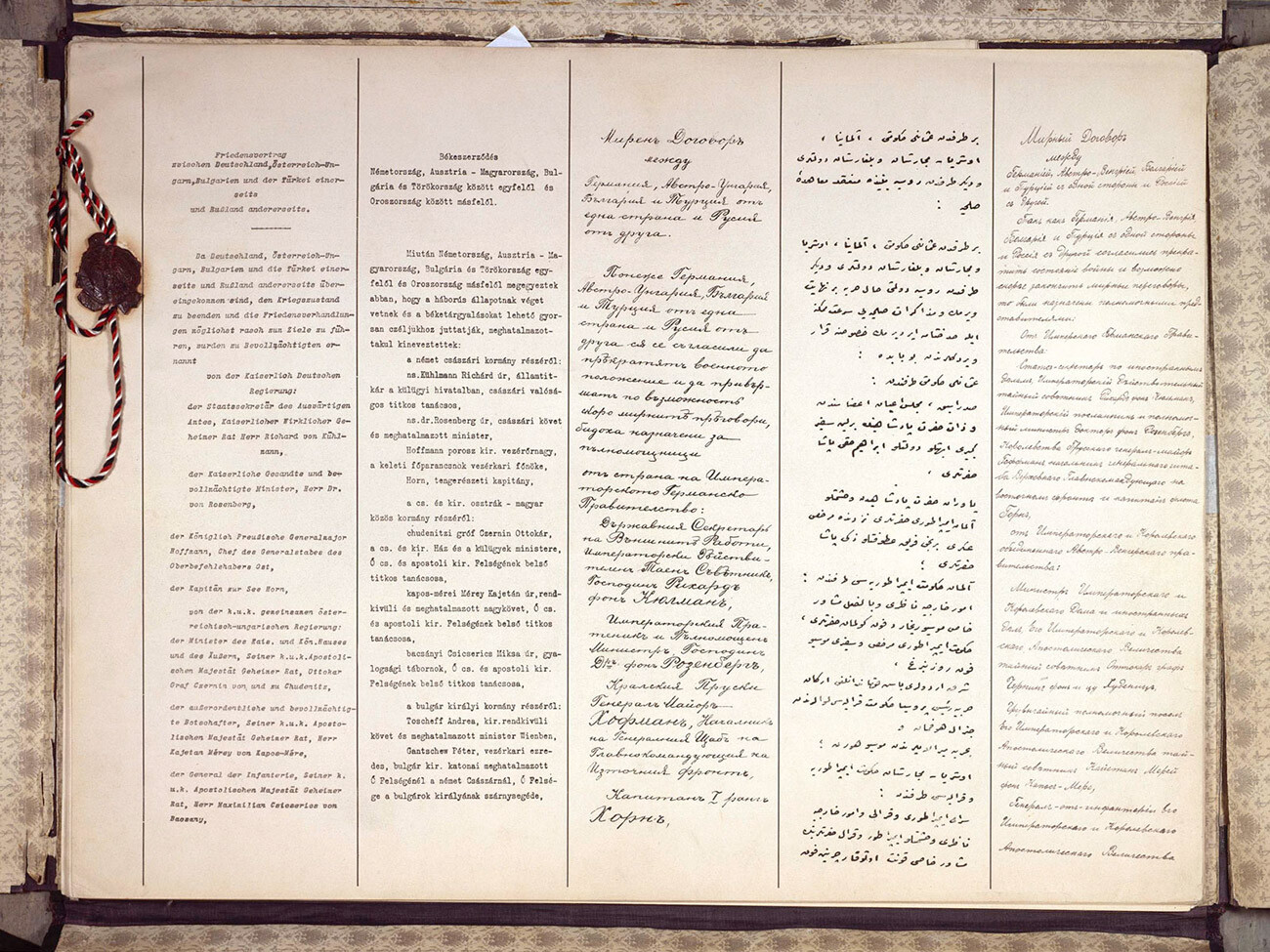
The first page of Brest-Litovsk peace treaty.
Public DomainLenin soon reversed the decision to demobilize. Nevertheless, the Bolsheviks started dragging out the talks in earnest, hoping for revolution to break out in Germany and openly calling for German workers to rise up. Eventually, the only thing they managed to achieve was an attack by the German army.
On February 18, in ‘Operation Faustschlag’, German and Austro-Hungarian troops launched a large-scale offensive from the Baltic to the Black Sea. The almost fully demoralized Russian army mounted practically no resistance to them, while Red Guard detachments, although they put up a desperate fight, were still too small in numbers and fragmented.
“The most comical of all the wars I have witnessed,” wrote General Hoffmann. “A small group of infantry with a machine-gun and an artillery piece on the front wagon travels from station to station, takes the next group of Bolsheviks prisoner and continues on its way.”
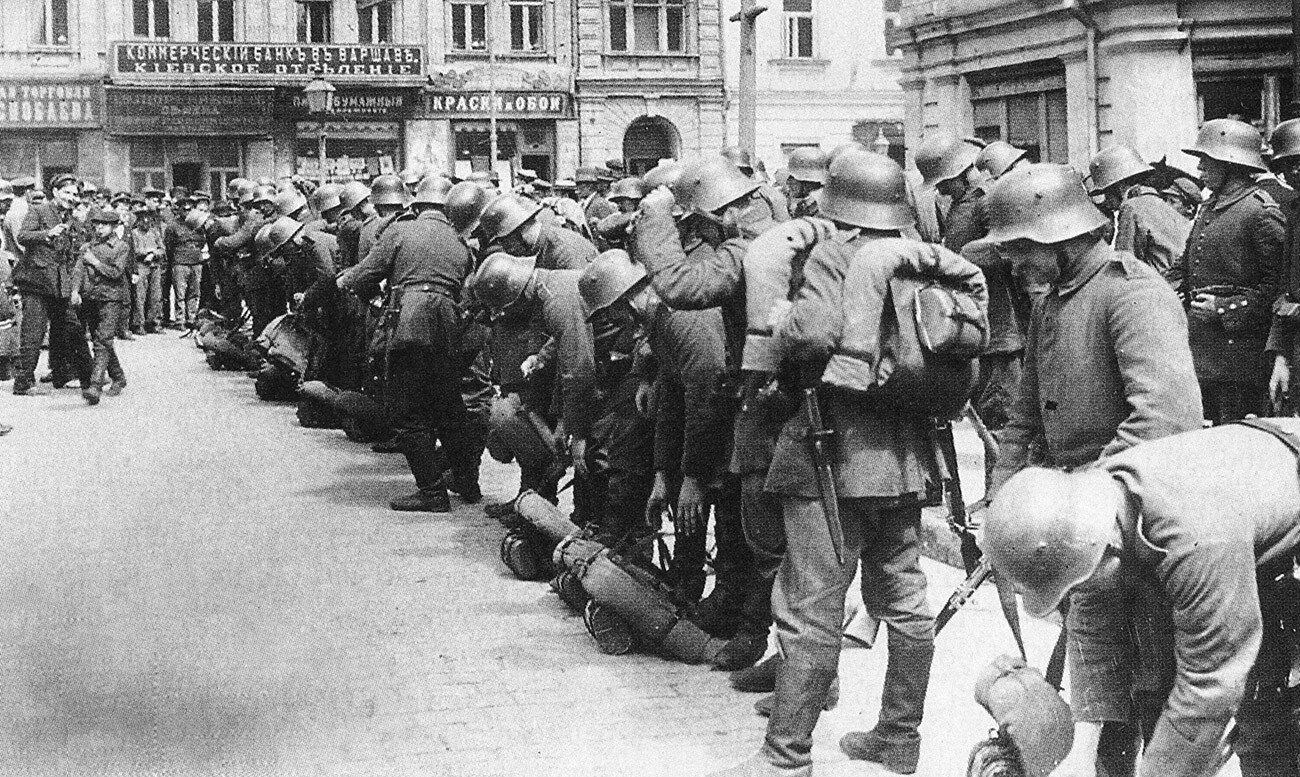
German troops in Kiev, March of 1918,
Public DomainMinsk was taken on February 21, while Kiev - to which the Ukrainian People’s Republic government, previously driven out by Soviet power, now returned - on March 2. The entire territory of present-day Ukraine, Latvia, Estonia and Belarus ended up under enemy control. German troops were just 170 km away from the capital of Soviet Russia, Petrograd (now St. Petersburg).
Given the crisis they faced, the Bolshevik leadership was split on what to do next. The viewpoint adopted by Lenin eventually prevailed - that the enemy’s demands be immediately accepted for the sake of saving the political authorities and regime.
The sides once again sat down at the negotiating table. The German conditions had, by now, become much harsher, however. According to the peace treaty signed at Brest-Litovsk on March 3, 1918 (as well as an additional agreement on August 27 of the same year), Russia lost the whole of the Baltic region, Poland and part of Byelorussia and had to pull its troops out of the territory of Finland - as well as Ukraine, the independence of which, in turn, it now undertook to recognize. A portion of territory in the Caucasus was also ceded to the Ottoman Empire.
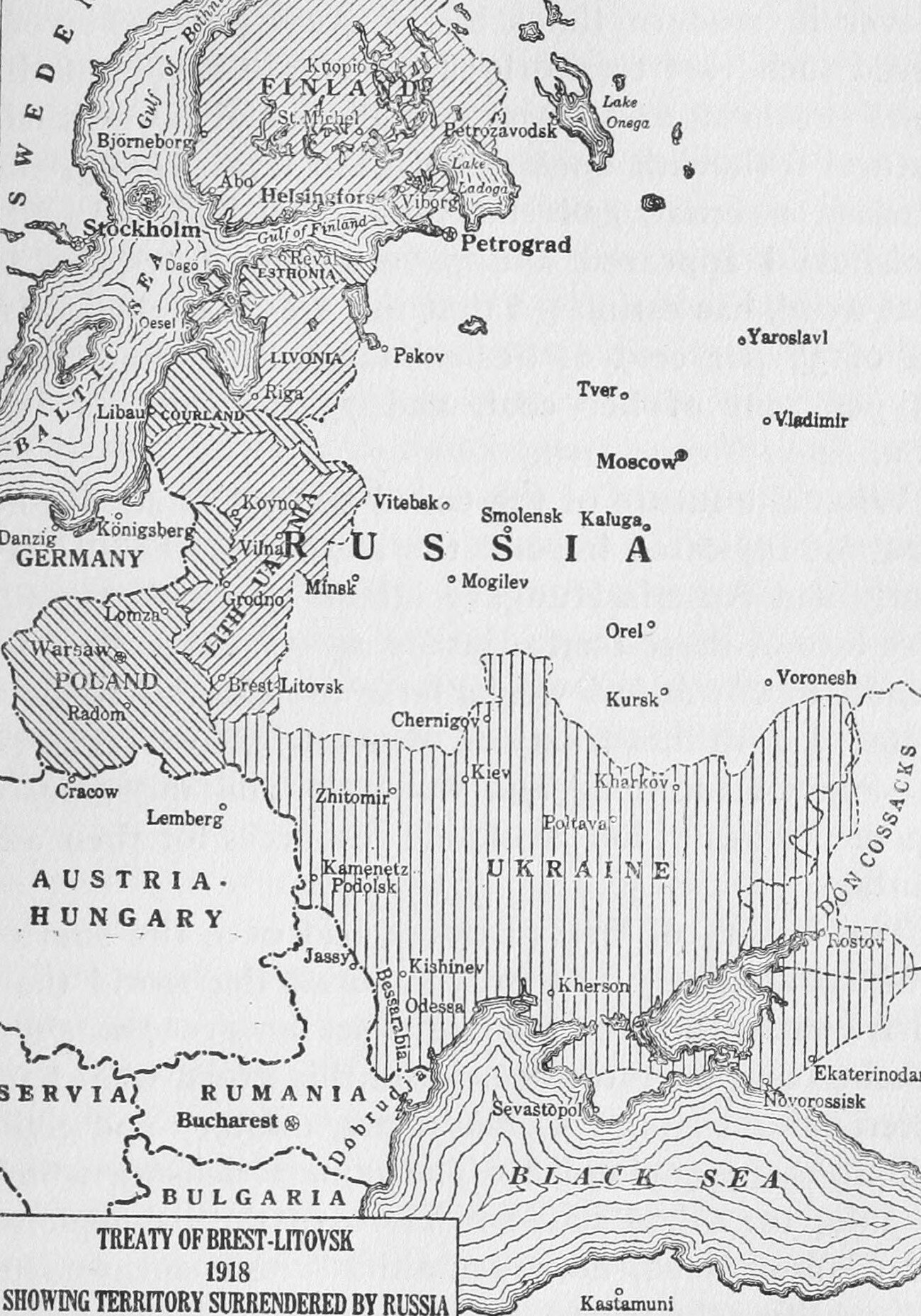
Treaty of Brest-Litovsk.
Public DomainFurthermore, Russia had to fully demobilize its army and navy, pay an indemnity, grant the Germans most-favored nation status in trade until the year 1925, allow tariff-free exports of ores and other raw materials to Germany and also cease political campaigning and propaganda against the Central Powers.
Kaiser Wilhelm II described the Treaty of Brest-Litovsk as “one of the greatest triumphs of world history, the significance of which only our grandchildren will be able to assess in full”. In Russia, it came as a bombshell, however, and was one of the catalysts for the Civil War.
“Even the Bolshevik sailors, yesterday’s murderers of officers, could not stomach this betrayal,” wrote engineer Nikolay Vrangel. “They started screaming that Crimea had to be defended from the Germans and ran around the town (Sevastopol) looking for officers and asking them to take command of the ships again. On the ships, the St. Andrew’s flag was again raised in place of the red flag.”
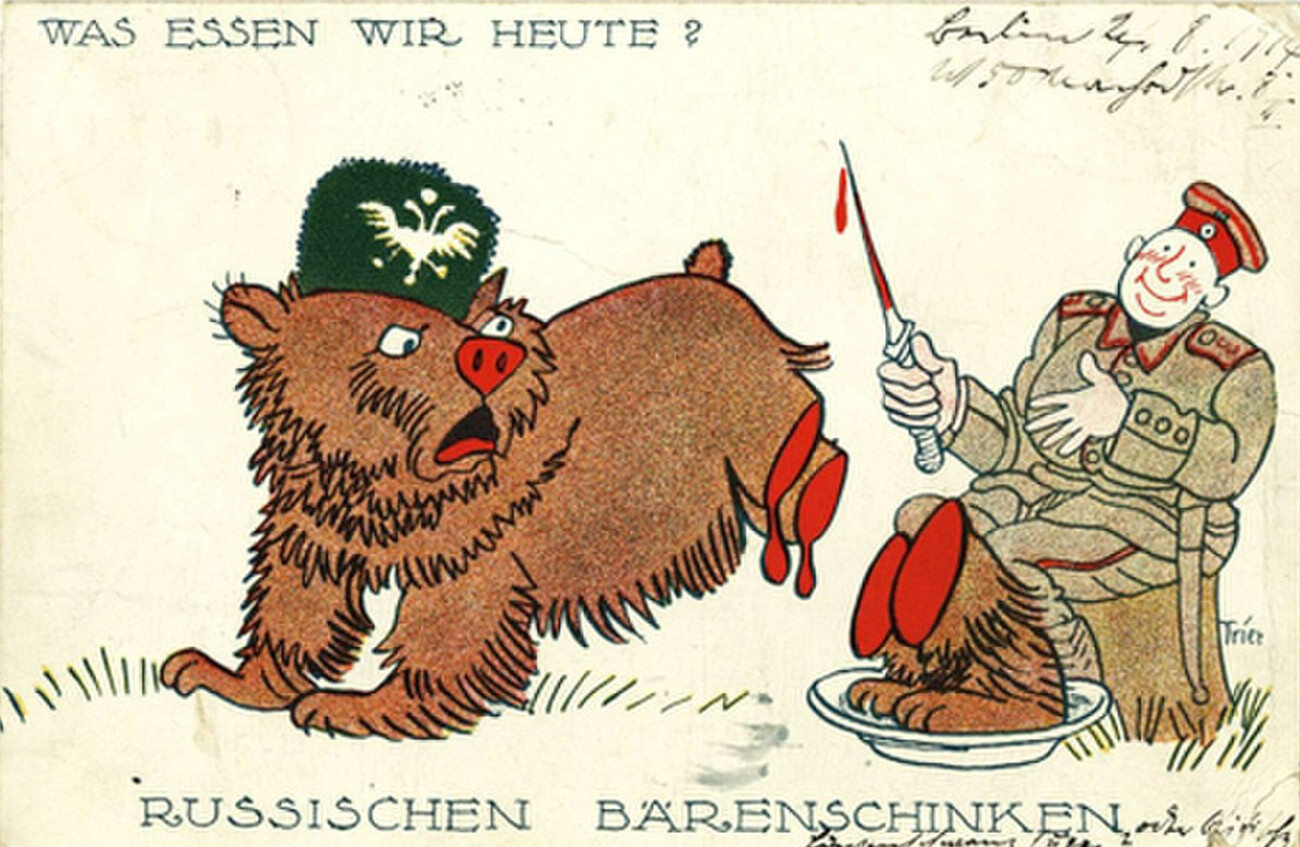
German postcard "What are we eating today? Russian bear ham".
Public DomainShocked at the prospect of dozens of freed-up German divisions being transferred to the Western Front, the British, French and Americans organized a large-scale intervention in Russia with the aim of putting the country back on the path of war and preventing the enemy from getting their hands on the huge quantity of military cargoes that the former had once themselves supplied to the Russian army and which was piled up in the ports.
For their part, the Bolsheviks saw the Treaty of Brest-Litovsk as a temporary measure. On November 13, 1918, on the day of the start of revolution in Germany, it was annulled by decision of the All-Russian Central Executive Committee.
Within a short space of time, German troops started withdrawing from the territory of the former Russian Empire. The Red Army followed hard on their heels with the firm objective of taking back what it regarded as belonging to it.
If using any of Russia Beyond's content, partly or in full, always provide an active hyperlink to the original material.
Subscribe
to our newsletter!
Get the week's best stories straight to your inbox